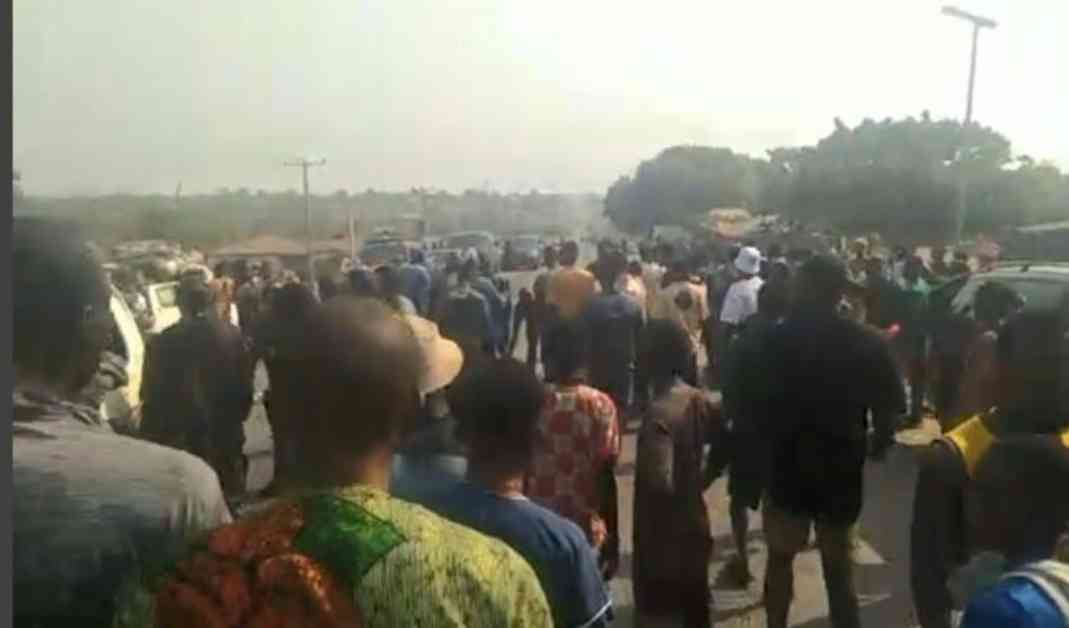Protesters Block Highway in Kogi Over Farmers’ Killings
Youths of Odo Ape community in Kabba-Bunu Local Government in Kogi State took a stand on Saturday by blocking the Lokoja-Kabba federal highway. This action was in response to the tragic killing of two farmers by gunmen suspected to be kidnappers in the area. The protesting youths brought vehicular movement to a halt at 8 am, demanding justice for the slain farmers and calling attention to the escalating security concerns in their community.
A Community in Mourning
The victims, Mr. Black and Sunday Aiyedero, met their untimely demise while tending to their farms in Odo-Ape. Mr. Black, on his way to the market with his farm produce, was fatally shot after allegedly disregarding the gunmen’s orders to stop. Shortly after, Sunday Aiyedero was also gunned down in a nearby farm, adding to the sense of fear and grief gripping the community.
The residents of Odo-Ape have been living in fear following a spate of violent incidents, including the recent kidnapping of a ward councillor. The gruesome murders of the two farmers only serve to exacerbate the already tense security situation in the area, prompting calls for urgent government intervention.
Security Measures and Calls for Action
In response to the escalating violence, the Chairman of Kabba-Bunu local government, Barrister Zacchaeus Dare, has mobilized a joint security task force comprising military, police, hunters, and local vigilantes. He emphasized the need for community cooperation in providing credible intelligence to facilitate targeted interventions against criminal elements operating in the area.
Meanwhile, the Kogi State Police Public Relations Officer, SP Williams Aya, has promised to address the security concerns raised by the community. However, as of the time of reporting, there has been no further communication from the police regarding concrete actions to address the ongoing security challenges in Odo-Ape.
As the residents of Odo-Ape grapple with the aftermath of these senseless killings, the need for sustainable security solutions and lasting peace in the community remains paramount. It is a stark reminder of the fragile state of security in many rural communities and the urgent need for concerted efforts to safeguard lives and livelihoods.















